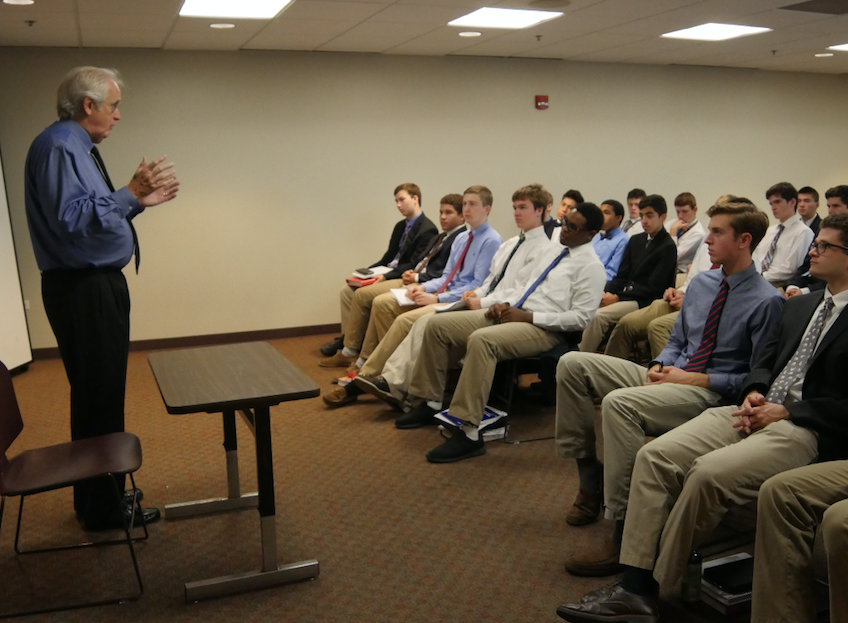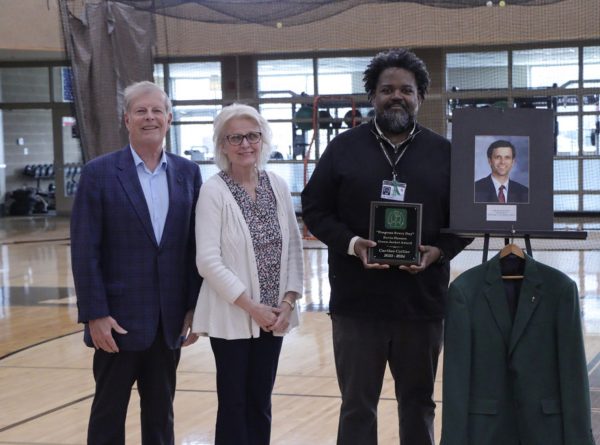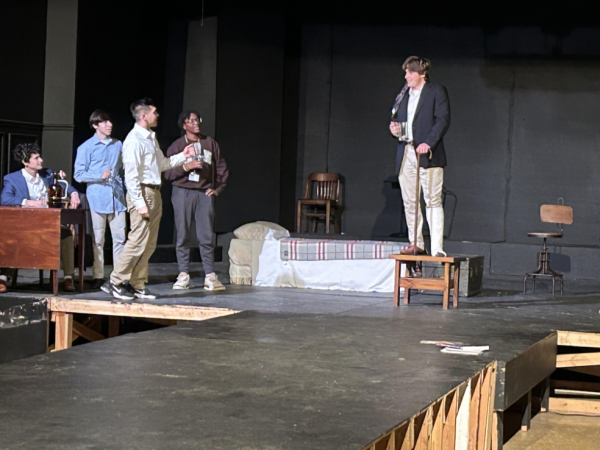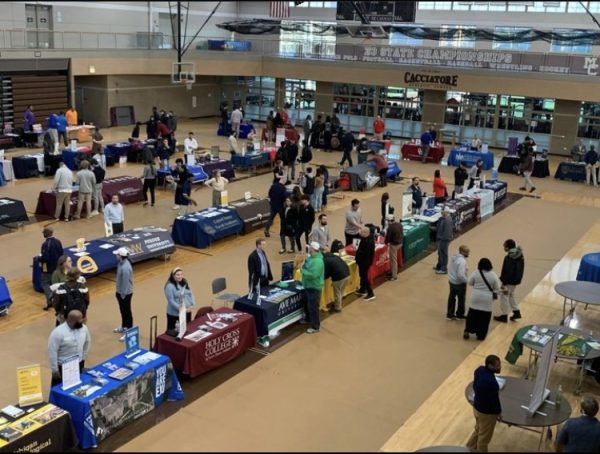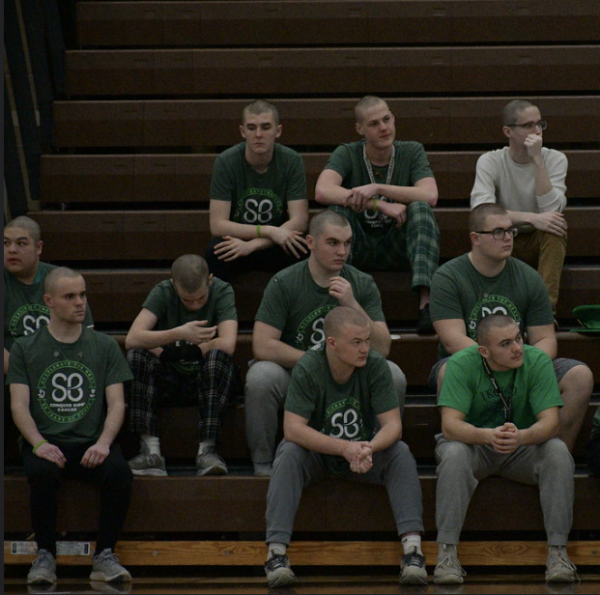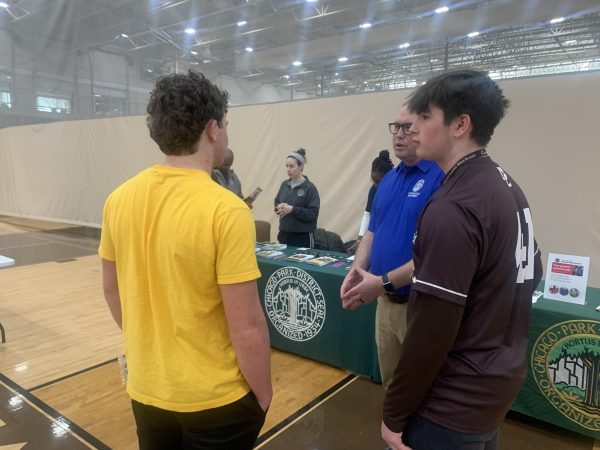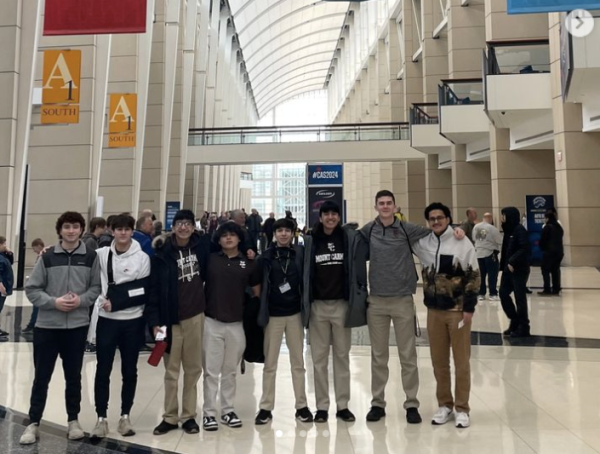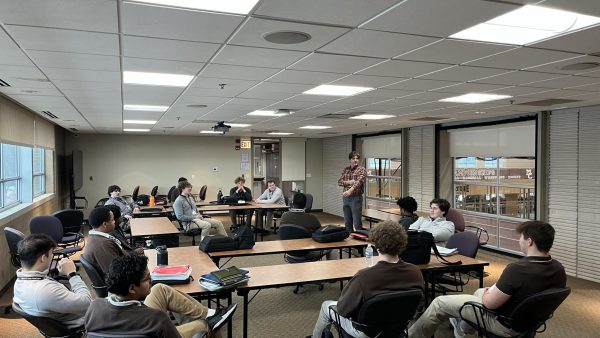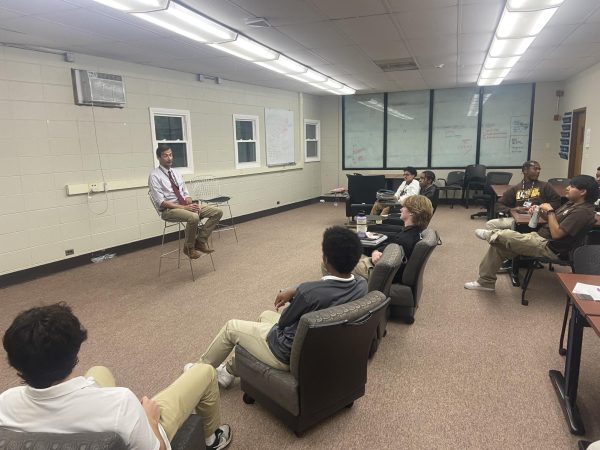ESPN’s Munson offers inside look at sports journalism
SPN’s Lester Munson visited with Caravan Journalists and the Ehrenstrom Scholars to discuss careers in journalism.
Well known sports journalist Lester Munson visited Mount Carmel on Tuesday, November 1, to speak with the Curt Ehrenstrom scholars and journalism class. The veteran writer and broadcaster discussed careers in journalism, and offered his perspective on several current issues in sports, including the controversy over paying Division I athletes and the state of Chicago’s professional teams.
Munson, who graduated from Princeton University and received his law degree from the University of Chicago, began his journalism career with Sports Illustrated in 1991. In 2004 he joined ESPN, where he is now the Senior Legal Correspondent.
With its 6000 current employees supporting its print, website, radio, and television platforms, and 40-50 new hires every week, Munson claimed that ESPN offers many opportunities for anyone interested in journalism to get a start that would lead to opportunities in various fields.
Referencing his experience in the sports industry over more than two decades, Munson observed that “The sports industry always grows; it never experiences a recession.”
In fact, claims Munson, “This is the golden age for ESPN,” with one of its biggest fans being President Barack Obama, who has been featured on an annual NCAA brackets show, and has made frequent stops at ESPN headquarters to play pick-up basketball games against the network’s staff.
After offering his encouragement to budding writers, broadcasters, and statisticians, Munson went on to discuss some of the main topics in the sports world today.
The first was whether college athletes should be paid. Recently, college athletes have fought for the chance to receive an annual stipend, in addition to the scholarships they already receive (which according to Munson, can amount to over $250,000 in some cases).
Despite the value of those scholarships, some college athletes argue that they deserve a share of the profit their schools are making from the athletic departments, particularly football and men’s basketball. Munson observed that instead of paying the athletes, universities spend millions of dollars on coaches’ salaries and building extravagant facilities.
Currently, there are at least three pending lawsuits that claim colleges’ refusal to pay athletes violates anti-trust laws. If any of these lawsuits win, Munson anticipates a “revolution” in the world of college sports, with colleges attempting to acquire athletes by offering them the highest pay.
In fact, Munson predicts that the paying of college athletes is inevitable, and that by next year colleges will be “on the edge” of doing so.
Munson next discussed the current state of Chicago’s professional sports teams.
Less than a decade ago, the Hawks were ranked in an ESPN survey as the worst-managed team in professional sports. Since then, Rocky Wirtz took ownership of the team, and turned the organization around “180 degrees” by winning three Stanley Cup championships. Most recently, ESPN ranked the team as the 12th best professional franchise among the four major sports.
Like the Blackhawks, the Cubs have made a complete turnaround. Improving facilities and hiring Theo Epstein lifted the Cubs from the worst record in baseball in 2012 to World Series Champions in 2016. As a lifelong Cubs fan, Munson noted that he “always thought it would be enough to get to the World Series.” However, now that the team is on the brink of ending its 108 year-old drought, he feels greedy: “You have to win.”
Munson was less enthusiastic about the state of the White Sox and Bulls. Munson pointed out that both franchises are controlled by Jerry Reinsdorf, and therefore both face the prospect of generational change in leadership, as Reinsdorf is in his mid-seventies.
His most direct criticism was reserved for the Bears, another franchise that will likely undergo a generational leadership change, as team matriarch Virginia McCaskey is now in her nineties.
When asked about the most interesting stories he has covered in his career, Munson pointed to “Deflategate,” the complicated investigation – and ultimate suspension – that followed allegations that Patriot’s Tom Brady deflated footballs to make them easier to throw.
One reason why Munson was not surprised by Brady’s suspension was that years prior to the incident, the quarterback had been part of a committee that suggested the policy of allowing teams to prepare their own footballs before games.
Munson concluded his presentation with advice for any student in the audience who was interested in going into the field of journalism.
“When you go to college, find some opportunity to write,” advised Munson, who wrote for Princeton’s newspaper while an undergrad.

